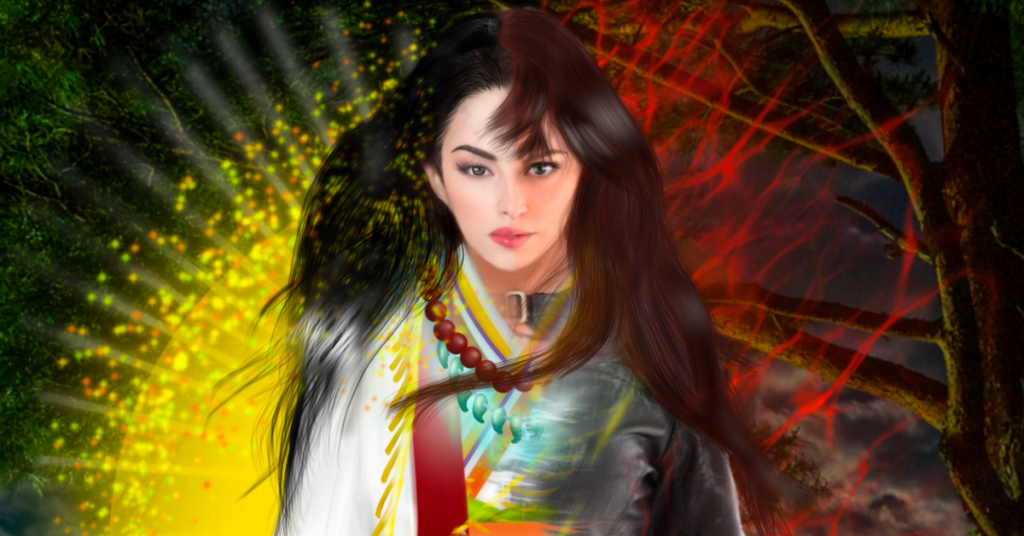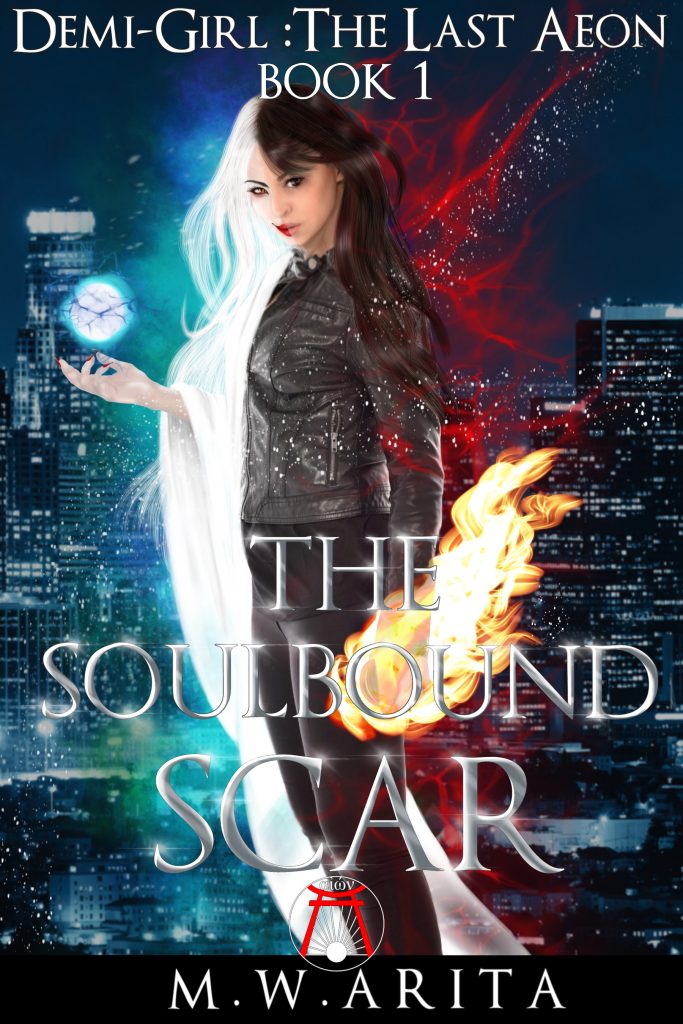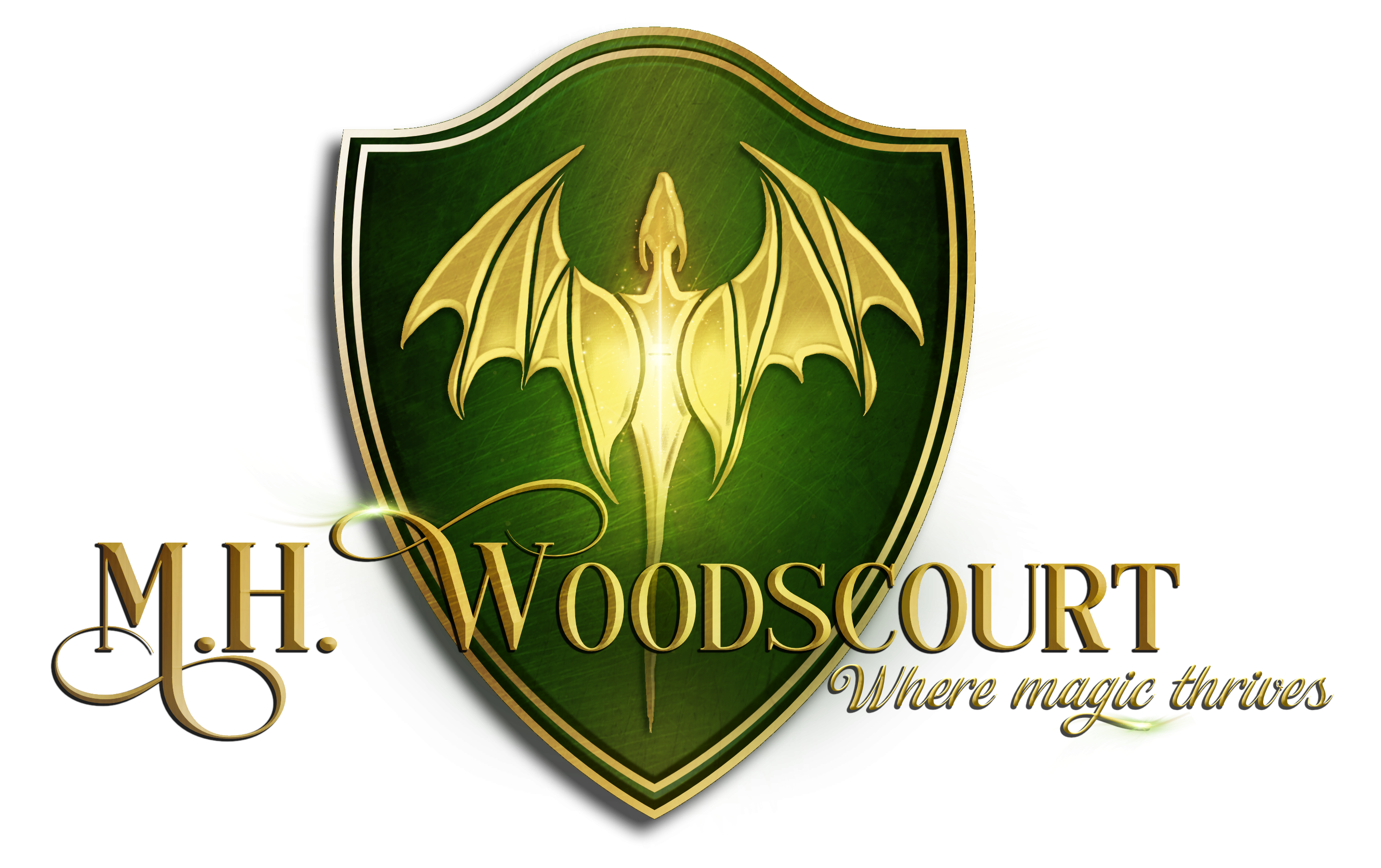M.W. Arita
This week I had the great pleasure of interviewing a talented author of unique Urban Fantasy and more. Read the interview right here!
***

Thank you so much for agreeing to this interview! To kick things off, tell me a little about yourself.
Hi there! Thanks for having me. My name is M.W. Arita. I’m the founder of Aeonian Entertainment (my publishing, media, and licensing company) and the creator of the Aeonian Covenant shared universe of stories.
I was born and raised in the US, but am currently living in southern Japan. I taught English here for about five years before transitioning to writing full-time.
When I’m not writing, I’m reading fantasy fiction, going out on walks with my dogs (a Yorkie and a white wolf), playing video games, taking photos, and traveling. Traveling in particular is my drug!
I’m more than a little jealous of you living abroad. That’s amazing! What led you to write fantasy?
I’ve always loved telling stories, and started writing my own when I was in elementary school. Fantasy felt like the natural fit for me since I love writing about characters with magical powers.
Outside of fantasy, I dabble in romance, sci-fi, historical…it depends on the project I’m working on, really.
What sub-genre(s) of fantasy do you prefer to write?
I prefer urban fantasy/paranormal, so the vast majority of my series will fall into that. However, I’m into all kinds of fantasy including sword & sorcery, dark fantasy, and sci-fi/fantasy hybrids.
Do you write with a particular message or worldview in mind?
I don’t think I set out to write with a specific message or worldview in mind, but I’m sure my views subconsciously affect my work. I will say that I’ve long been a student of mythology, folklore, religion, and the occult, so those subjects will often appear in and color my work.
What is your preferred writing style? Does it coincide with your reading preferences?
This is a tricky one. It varies from project to project. I’m very experimental with my writing, so I like to challenge myself with each new book or series to attempt something I’ve never tried before.
For example, with my “Demi-Girl” series, I write in first-person with a pretty casual, loose, conversational style since it’s a very modern series viewed through the lens of a snappy, snarky teen girl. Then I have a dark, gritty series about an assassin that’s written in more of a “film noire” style accompanied by the rain-slick streets and bitter cynicism that you’d expect out of the genre. On top of that, I have a children’s fantasy series that’s light-hearted, comical, and told in a simple, more straightforward style.
I don’t have a particular preference for narrative styles when I’m reading. As long as the story and especially the characters are engaging and compelling enough, I’m all set.
It’s awesome that you can shift styles to suit the mood of a book. Definitely a talent!
How do you feel about a hero vs. a protagonist in fiction?
This is an excellent question! I think that people tend to use the two terms interchangably, but there’s a slight difference. The protagonist is simply the lead character whose perspective we’re following. They don’t necessarily have to be a good person.
In Dostoyevsky’s “Crime and Punishment,” Rodion Raskolnikov is the central protagonist of the novel, but he is most certainly not a hero. I feel that a hero is someone who sets an example for the reader to aspire to, someone who does the right thing even when no one else is watching.
I feel the same way! Do you prefer a sympathetic villain or someone a reader loves to hate? Or is there another kind of villain you prefer to write?
I generally lean towards the sympathetic types, though. The sorceress Daji in my “Demi-Girl” series is simply a mother who loves her daughter to the point of obsession, and even though she’s a demon, her actions and desires are achingly human. I find her more compelling to write as a result.
That said, it’s good to have a classic “love to hate” villain from time to time. There’s a reason why a character like the Joker from the Batman comics and films has endured for so long. These types of villains have a certain symbolic universality to them that the more sympathetic villains often can’t quite live up to.
Tell me more about one of your published works.
“Demi-Girl” is my longest-running series. It’s a young adult urban fantasy set in a larger shared universe. The series focuses on my heroine Alice as she travels the globe and encounters gods and monsters from various world myths (similar to Percy Jackson but ALL of world mythology, not just Greco-Roman stuff).
I’m quite proud of what I’ve done with Alice and consider her to be among the most unique heroines in the urban fantasy genre. She’s half-Japanese, half-Peruvian, as well as half-human, half-demon. A major theme in the series has to do with her being at the “crossroads” of so many worlds and cultures and searching for an identity and where she truly belongs. She also has quite a unique magical power that I haven’t seen done in the genre before, but I won’t spoil it here…
That sounds fantastic and very intriguing! I’ll definitely check it out. What are you working on now?
I’m in the middle of various projects including wrapping up the first “season” story for “Demi-Girl” (set in Japan), finishing the first book in a children’s fantasy series, and starting the first draft of a vampire paranormal romance series. The male love interest in that book is a major character from “Demi-Girl,” so if you enjoy seeing cross-overs and connected stories, you’re going to love my books.
My own stories are all connected and often cross over into each other, so I definitely love this idea!!
Are you traditionally published or do you publish independently? Why did you choose that path to send your books into the world?
I’m all indie for now because I have a long-term vision for my universe and brand that I full control over. I’m not against working with a traditional publisher, however, and will consider seeking them out for the right project in the future.
That makes a lot of sense.
Who are your favorite authors?
I have so many! I’ll separate them into authors from two sides of the globe.
Western:
Alexandre Dumas- The Count of Monte Cristo is my favorite novel of all time.
Neil Gaiman- I adore his rich, literary style and his focus on mythology.
Jim Butcher- The Dresden Files is such a joyride and so much fun.
Rick Riordan- He introduced a whole new generation of readers to folklore and myths, and for that I’m grateful. I also appreciate his sense of humor.
Cassandra Clare- Awesome urban fantasy settings and fight scenes+bad boys+compelling romance plots= heaven
J.R.R. Tolkien- He needs no introduction. Definitely the “spark” that started my interest in fantasy as a whole.
Eastern:
Kinoko Nasu- The creator of the “Fate” franchise, which is my favorite series ever. His characters are top-notch, his knowledge of mythology is every bit as in-depth as Gaiman’s, and his world-building is as detailed as Tolkien’s.
Tetsuya Takahashi- While his works (the “Xeno” video game franchise) aren’t novels, his stories’ themes have had a profound impact on my life and the subjects I choose to write about.
Yoshihiro Togashi- The author of the “Yu Yu Hakusho” manga series. His villains are among the most complex and nuanced in all of modern fiction and have inspired many of my own antagonists.
So many incredible creators listed there!
What are your writing habits?
I have a difficult time focusing at home, so I usually write at a coffee shop. I love me some green tea frappuccinos. When I’m knee-deep in a scene, I always have to have music playing. Usually, I go for songs that match the specific mood I want to evoke in the scene.
Do you prefer to plot your books out in advance, or do you dive in and see where the story takes you?
I hate to sound like a broken record here, but it really does depend on the project. The “Demi-Girl” series tends to involve a lot of characters and locations, so those books have to be outlined in great detail ahead of time. With something like my vampire romance or the “film noir” assassin books, those are smaller in scale and focused on one main character or setting so they’re easier to just jump into without a detailed outline.
I like having that variety, though. Keeps me on my toes.
Do you enjoy writing plot-driven or character-driven stories more?
Ideally, both the characters and plot should be compelling, but if I have to choose between the two, I’ll go with characters every single time. I’ve read books with rather bland, pedestrian plots that were elevated by extremely entertaining characters but rarely will I stick with a book that has a solid plot if I don’t care about or like any of its characters.
What type of fantasy medium do you enjoy most?
I enjoy them all! What’s important is the story, not necessarily the vehicle that contains the story. I try to absorb stories from all forms: books, TV shows, films, video games, comics, and so on. They all have their own specific strengths and weaknesses as mediums, so I always feel like I’m learning something from them.
Switching tracks, what destination in the world would you most like to visit?
All of them! I have such a bad case of wanderlust. My current dream destination is Iceland (which is conveniently tied to writing research) and seeing the Northern Lights there. Obviously can’t do that right now with the current situation, but hopefully someday…
Writers, and artists in general, usually have a few quirks. What is a fun quirk YOU have?
When I’m really focused on writing a scene and want to tap into my subconscious mind, I pick a song that evokes the emotion of the scene and I play that song on loop over and over. It puts me into a sort of “trance” and helps my playful writer side come out. I find that the best scenes I’ve ever done have come about from this method.
In closing, what advice do you have for up-and-coming writers?
No matter what, don’t forget to have fun! If you’re enjoying the story and having a blast, that will come through in the writing. The same goes for if you find your story boring or a slog.
Also, there are so many experts out there with conflicting advice, so while it’s important to learn as much as you can, you need to trust your instincts and do what’s best for your writing and your career.
Thank you again for interviewing with me, M.W.! It’s been an absolute pleasure, and I look forward to reading about your worlds! Best of luck as you continue weaving stories.
To keep up with M.W. Arita’s fantasy books, check out the links below!
Site: https://mwarita.com/
Email: [email protected]
Facebook: http://facebook.com/mwaritaauthor
Twitter: http://twitter.com/mwaritaauthor
Instagram: http://instagram.com/mwaritaauthor
Amazon: http://amazon.com/M.W.-Arita/e/B07NBZCW6M/ref=ntt_dp_epwbk_0
Pinterest: http://pinterest.com/aritauthor
Goodreads: http://goodreads.com/author/show/18840573.M_W_Arita
Join M.W. Arita’s mailing list and get six—yes, SIX—free books: http://eepurl.com/gfxsNn

